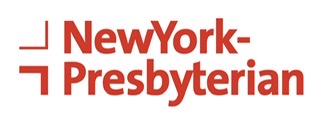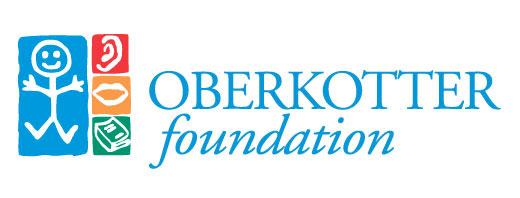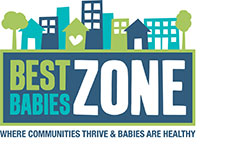Partnerships Projects

Partnership with New York Presbyterian Hospital (NYP) and the University Albany at SUNY
In April 2021, NMPP launched the Maternal Action Network Telehealth Project. Founded by the New York State Health Foundation, this initiative is a collaborativewith NYP Hospital and University Albany at SUNY. The overarching goals of the project are to elevate the voices of women of color, and to give them better control of the management of their health care. The project will:
• Develop a sustainable model for maternal and child telehealth services focused on women of color, who are disproportionately affected by adverse pregnancy outcomes.
• Create a patient-provider partnership to identify telehealth barriers and benefits for women of color,and help reduce health disparities.
• Develop a patient council comprised of participants from diverse backgrounds, including prenatal and perinatal women who are immigrants (incl. Spanishand French speaking).
• Partner with NYP Hospital to recruit patients without resources for virtual communication and equip them with devices and support for connecting online.
• Partner with the University Albany at SUNY for the project evaluation.
• Co-develop best practices, and a manual for maternal and child telehealth services for dissemination.
Partnership with New York Presbyterian (NYP) Hospital
In 2005, New York Presbyterian (NYP) Hospital and community leaders initiated the Washington Heights & Inwood Network (WIN) for Asthma Program, a community health worker (CHW) led initiative to address local health disparities, and to improve outcomes for children with poorly controlled asthma.
SERVICES
Pediatric Community Health Worker Program (Formerly SKATE)
As a result of the demonstrated impact of the WIN project, in 2015 the Northern Manhattan Perinatal Partnership (NMPP) and the Center for Community Health Navigation (CCHN) at New York Presbyterian Hospital co-developed and implemented a DSRIP (SKATE) funded Community Health Worker (CHW) led program to support children with special health care needs. These CHWs are employed by NMPP. In July 2017, the pediatric programs were combined to form the Pediatric Community Health Worker Program.
Oberkotter Project
In 2018 NMPP and CCHN at NYP co-developed a CHW-led program to support children with hearing loss and their families. These CHWs are employed by NMPP. This project is sponsored by the Oberkotter Foundation. The goals of the Pediatric CHW Program are to help patients and their caregivers address the social needs that interfere with health management and well-being,and to support coordination of care.
Role of the Community Health Worker (CHW) with SKATE & Oberkotter
• Conduct home visits
• Provide appointment accompaniment (medical, social services, school)
• Deliver and reinforce education around 3 key messages:
Know your child’s condition(s)
Know how to access health care for your child
Keep your child’s condition(s) under control
• Support participant’s goals around their child’s care, including:
Medication management
Transitioning from pediatric to adult medicine
Organizing to best coordinate care and manage appointments
• Linkages to address social challenges, including: housing, immigration, employment
Success
• For children with poorly controlled asthma who are enrolled in the program, to date, hospitalization rates have decreased by 76%.
• Emergency department (ED) visits have decreased by 68%.
• 97% of caregivers reported feeling able to manage their child’s asthma.
• 83% of the caregivers with unmet social needs were successfully connected to social service resources that address needs related to housing, food insecurity, and healthinsurance
Nearly 65% of the 157 caregivers who completed the program reported decreased levels of distress upon discharge
Service Areas/Zip Codes: All five boroughs for patients receiving care at Columbia University Irving Medical Center (CUIMC) and Weill Cornell Medical Center (WCMC).
Partnerships for Early Childhood Development (PECD)
NMPP partners with the PECD at Colombia University Medical Center (CUMC) on a project that involves screening for psychosocial determinants of health during well-child care visits, in order to provide comprehensive upstream care to the families, and maximize the child's potential, well-being, and school readiness.
• The project focuses on utilizing a set of surveys (including the SWYC: survey of the well-being of young children) during well-child visits, to stratify patients into three levels of risk, and connect them with resources accordingly.
• The CHW (employed by NMPP) is an integrated member of the PECD team, and works in collaboration with representatives from New York Presbyterian Hospital (Charles Rangel Clinic) and NMPP through the Healthy Start program.
Family Peace Center
• In 2018 NMPP partnered with the Family Peace Center to provide trauma screening, assessment, and therapy services for women with children 0-5 years old.
Partnership with City Match
(The Project was formerly under the umbrella of theUniversity of California, Berkeley School of Public Health).
Best Babies Zone, Harlem
In 2017 NMPP partnered with UC Berkley School of Public Health to create Best Babies Zone, Harlem (BBZ Harlem). “Best Babies Zone, Harlem” is the first Best Babies Zone in the whole Northeast for this national initiative. The BBZ approach is a place-based, multi-sector, community driven effort to reducing racial inequities in birth and life outcomes through mobilizing community residents and organizational partners to address the social determinants of health.
Mission: To give every baby born in a Best Babies Zone the best chance in life.
Service Areas/Zip Codes: BBZ Harlem is comprised of specific areas in the 10027 zip code, particularly the Manhattanville and Grant Houses,and the surrounding area.
Partnership with Morris Heights
NMPP works collaboratively with Morris Heights Health Center to provide a navigator once per week to enroll eligible community residents in health insurance and SNAP benefits.


